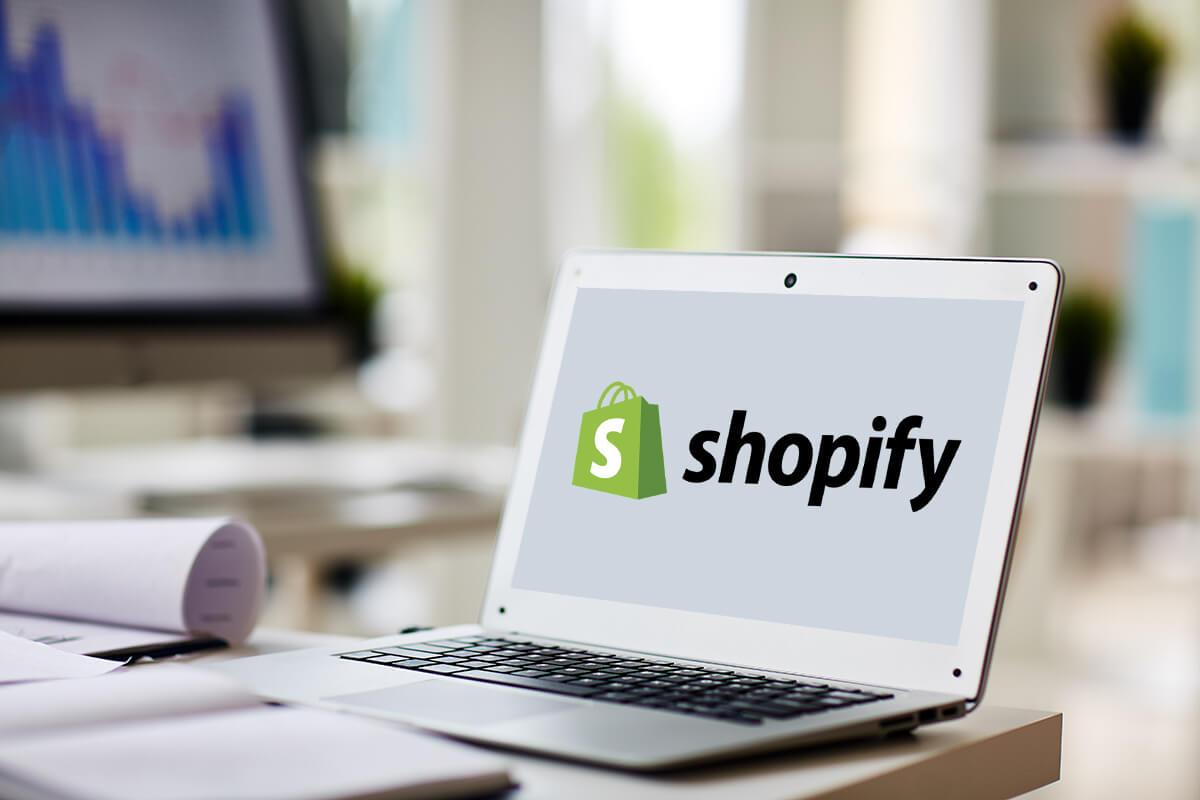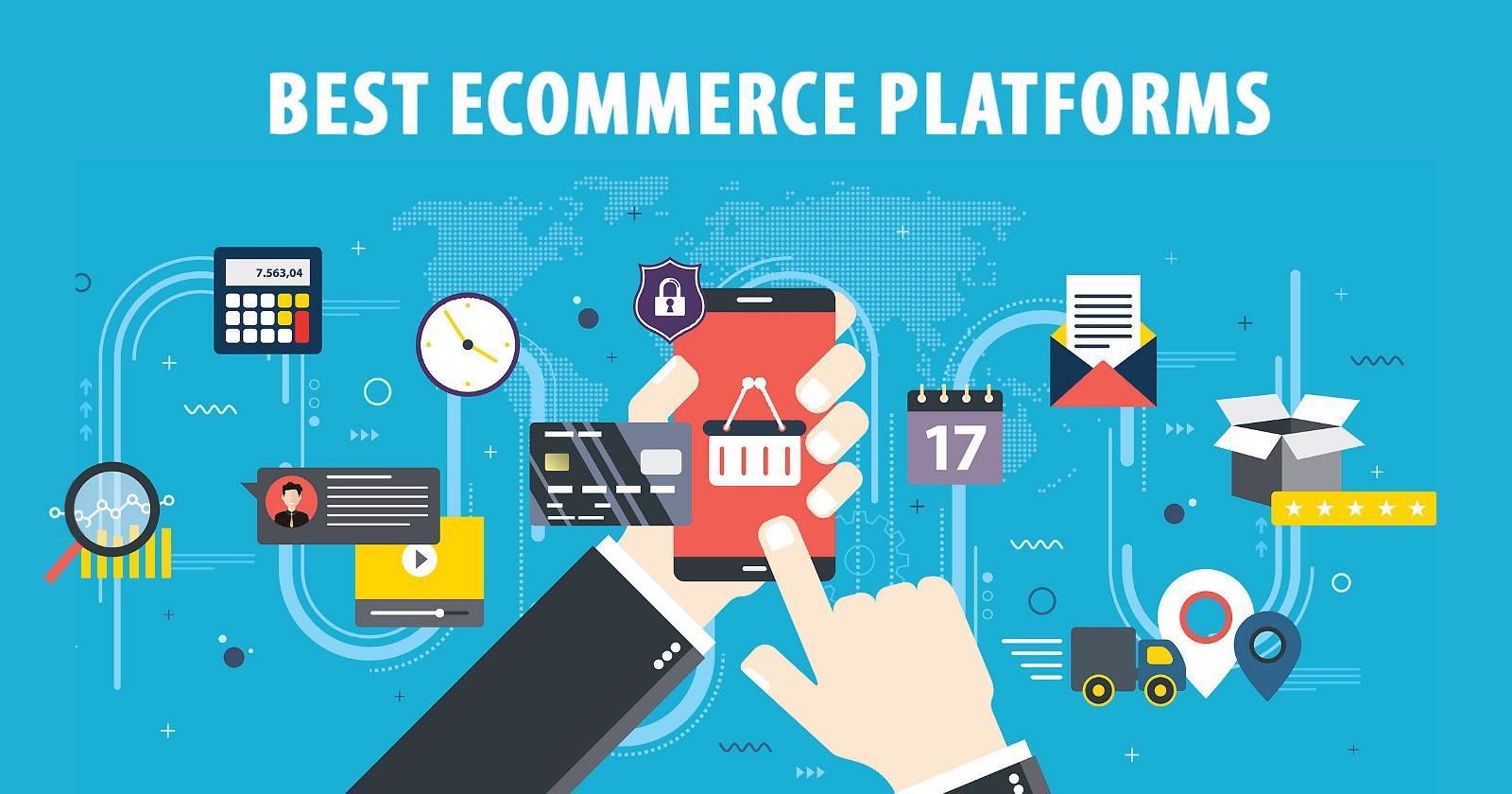In today’s digital marketplace, choosing the right platform to showcase your creations can feel a bit like picking the perfect outfit for a first date. You want it to reflect your unique style, resonate with your audience, adn—let’s be honest—help you shine! If you’re an artisan or small business owner wrestling with the choice between Shopify and Etsy, you’re not alone. Both platforms have their own set of charms and challenges, making the decision a bit daunting. but fear not! In this article, we’ll dive into the nitty-gritty of Shopify and Etsy, exploring their features, costs, and unique selling points. By the end, you’ll have a clearer picture of which platform aligns best with your vision and goals. So, grab your favorite cup of coffee, and let’s unpack the ultimate showdown: Shopify vs. Etsy!
Understanding the Core Differences Between Shopify and Etsy
when diving into the world of e-commerce, both Shopify and Etsy present unique opportunities tailored to different types of sellers. Understanding how these platforms diverge can definitely help you make an informed decision about which best suits your business model.
Shopify: the All-in-One E-Commerce Solution
Shopify is a robust e-commerce platform designed for entrepreneurs looking to create a standalone online store. Its features include:
- Customization: Shopify offers extensive design options, allowing for a personalized storefront that reflects your brandS identity.
- Scalability: Ideal for growing businesses, Shopify accommodates large inventories and high traffic volumes seamlessly.
- Payment Flexibility: with numerous payment gateways integrated, shopify enables you to manage transactions effortlessly.
Etsy: The Marketplace for Handcrafted Goods
Etsy, on the other hand, is a well-established marketplace that specializes in handmade, vintage, and unique items. Here’s what you can expect from Etsy:
- Built-in Audience: Etsy’s platform attracts millions of buyers specifically searching for unique and artisanal products.
- Simplicity: Setting up a shop is straightforward, making it easier for newcomers to dip their toes into e-commerce.
- Community Focus: Etsy fosters a sense of community, offering tools for sellers to connect and collaborate.
| Feature | Shopify | Etsy |
|---|---|---|
| target Audience | General consumers looking for any product | Artisan and vintage enthusiasts |
| Store Customization | Highly customizable | limited customization options |
| Fees | Monthly subscription + transaction fees | Listing fees + transaction fees |
| Marketing Tools | Advanced marketing options (SEO, ads) | Built-in marketing tools, but limited |
Ultimately, the decision between Shopify and Etsy hinges on your business goals. If you envision creating a brand with a unique identity and plan to scale, Shopify is your best bet. However, if your passion lies in crafting handmade goods and you prefer a ready-made audience, Etsy’s marketplace is likely the better option. Assess your needs carefully, and choose the platform that aligns with your vision and growth trajectory.

Evaluating Fees and Pricing Structures for Your Business
When choosing between Shopify and Etsy,one crucial aspect to consider is the fee structure of each platform. Both platforms offer unique pricing models that cater to different types of businesses, and understanding these can significantly impact your overall profitability.
Shopify operates on a subscription model, where you pay a monthly fee that ranges from $39 to $399, depending on the plan you choose. This fee includes a range of features such as unlimited product listings, customizable storefronts, and 24/7 customer support.Here’s a brief comparison of the pricing plans:
| Plan | Monthly Fee | Key Features |
|---|---|---|
| Basic | $39 | Online store, 2 staff accounts, basic reports |
| Shopify | $105 | Gift cards, professional reports, more staff accounts |
| Advanced | $399 | Advanced reports, third-party calculated shipping rates |
In addition to the monthly fees, Shopify also charges a transaction fee if you don’t use Shopify Payments. These can range from 0.5% to 2%, which is an important cost to account for if you plan to use third-party payment processors.
Etsy, on the other hand, has a different approach. Etsy charges a nominal listing fee of $0.20 per item, which is a pay-per-listing model, alongside a transaction fee of 6.5% on the sale price. This makes it more cost-effective for sellers with a smaller inventory, as you only pay for the listings that sell. However, if you have a larger catalog, this could add up quickly.
Moreover, Etsy also charges payment processing fees, which vary by country but generally hover around 3% + $0.25 per transaction.This structure means that while your initial costs might be lower,the long-term fees could accumulate depending on your sales volume.
ultimately, the decision on which platform to choose depends on your business model. If you’re aiming for a high-volume sales approach with a vast product range, Shopify might be the better option due to its robust features and scalability. Conversely, if your business is more focused on niche markets with fewer products, Etsy’s lower upfront costs may be more appealing.

Customization Options: Finding Your Unique Brand Identity
In the world of e-commerce,establishing a brand identity that resonates with your target audience is crucial.Both Shopify and Etsy offer customization options, but they cater to different needs and styles. Let’s explore how each platform can definitely help you craft a unique brand presence.
Shopify gives you access to a wide range of themes and templates that are easily customizable. From altering color schemes to uploading custom logos, Shopify ensures that your online store reflects your brand’s personality. Here are some key features:
- Drag-and-drop interface: Adjust layouts effortlessly to create a visually appealing storefront.
- HTML/CSS access: For those who want full control, you can dive into the code to make precise adjustments.
- App integrations: Enhance functionality with apps that allow for unique features like customer loyalty programs or personalized email marketing.
On the other hand,Etsy is designed for artisans and handmade goods,providing an environment that emphasizes creativity. While the customization options are somewhat limited compared to Shopify, they still offer valuable features to help you stand out:
- Shop banners and logos: make a lasting first impression with custom visuals that capture your brand’s essence.
- Product photography: High-quality images will set your items apart, showcasing your unique style and craftsmanship.
- Customizable shop announcements: Engage your audience with personalized messages to convey promotions or news.
To help you better understand the differences in customization capabilities,consider the following comparison:
| Feature | Shopify | Etsy |
|---|---|---|
| Theme Customization | Extensive with HTML/CSS access | Basic with preset options |
| Logo and Banner Design | Highly customizable | Limited but creative emphasis |
| Third-Party Apps | Robust ecosystem | Limited integrations |
Choosing the right platform ultimately boils down to your brand vision. If you value deep customization and control over your storefront, Shopify might be your go-to.However, if your focus leans toward creativity and community, Etsy provides a unique possibility to connect with like-minded customers who appreciate handmade goods.
Traffic and Audience: Where Will Your Products Shine?
when it comes to choosing between Shopify and Etsy, understanding your target audience and traffic sources is crucial for maximizing your product’s visibility and sales potential. Each platform attracts a different demographic, and leveraging these differences can definitely help you determine where your products will truly shine.
Etsy is renowned for its vibrant community of artisans and vintage enthusiasts.if your products are handmade, unique, or vintage, you might find a more engaged audience on Etsy. Here are some factors to consider:
- Artisan Focus: The platform attracts buyers looking for one-of-a-kind items, making it ideal for niche markets.
- Community Vibe: Etsy fosters a sense of community, which can translate into loyal customers who appreciate the story behind your creations.
- Search Traffic: Etsy’s built-in search function can drive organic traffic to your listings, especially when optimized with the right keywords.
On the flip side, Shopify offers a more comprehensive e-commerce solution, allowing for greater flexibility and control over your online store. If you’re looking to build a brand and market a wider range of products, Shopify might be the better choice. Consider these points:
- Branding Opportunities: Shopify allows for customization and branding, giving you the power to create a unique shopping experience.
- Product Variety: If your offerings extend beyond handmade goods—like digital products or dropshipping items—Shopify provides the scalability needed.
- Traffic Sources: With Shopify, you can implement various marketing strategies, such as social media ads and email campaigns, to drive traffic directly to your site.
To further help in your decision-making, consider the following comparison of potential audience engagement on both platforms:
| Feature | Etsy | Shopify |
|---|---|---|
| Target Audience | Niche shoppers, handmade enthusiasts | General consumers, brand-focused |
| Traffic Generation | Organic through Etsy search | Varied through marketing efforts |
| Customization | Limited | Highly customizable |
| Fees | Listing and transaction fees | Monthly subscription + transaction fees |
Ultimately, the decision hinges on your product nature and your business goals. If you thrive on creativity and community connection, Etsy might be your playground. Though,if you prioritize brand expansion and diverse product offerings,Shopify could be the launchpad you need. Knowing where your audience spends their time will ensure your products receive the spotlight they deserve.

Ease of Use: Which Platform Simplifies Your Selling Experience?
When it comes to choosing between platforms like Shopify and Etsy, ease of use is a crucial factor that can significantly affect your selling experience. Both platforms cater to different types of sellers and have unique features that can either simplify or complicate the process of setting up an online store.
Shopify is known for its user-friendly interface, making it a go-to choice for entrepreneurs who want to launch their own e-commerce store quickly. With its intuitive dashboard, sellers can manage products, inventory, and orders with just a few clicks. Here are some of the features that enhance Shopify’s ease of use:
- Drag-and-drop website builder: No coding skills? No problem! Customize your store layout effortlessly.
- Multiple payment gateways: Choose from a range of payment options that simplify transactions.
- Comprehensive support resources: tutorials, forums, and 24/7 customer support are available to guide you through any challenges.
On the other hand, Etsy specializes in handmade, vintage, and unique goods, and its platform is designed for sellers who want to tap into a niche market. While Etsy’s setup is straightforward, it does have its quirks that sellers should consider:
- Listing products: The process is streamlined, but ther are specific formats and tags that sellers must adhere to.
- Built-in audience: Etsy’s existing customer base can be a double-edged sword, as while it’s easy to list items, competition is fierce.
- Fee structure: Understanding the fees associated with listings and sales can be complex, affecting your overall profitability.
Both platforms offer mobile apps that allow sellers to manage their shops on the go. Shopify’s app provides a rich set of features, including inventory management and sales analytics, while Etsy’s app focuses primarily on managing orders and communicating with buyers.
To help you decide, here’s a quick comparison of the two platforms in terms of ease of use:
| Feature | Shopify | Etsy |
|---|---|---|
| User Interface | Intuitive and customizable | Simple but niche-focused |
| Setup Time | Quick and straightforward | fast but limited to specific products |
| Support Resources | Extensive tutorials and 24/7 support | Community forums and help articles |
Ultimately, the choice between Shopify and Etsy boils down to your business model and what you prioritize in your selling experience. If you seek flexibility and a robust set of tools, Shopify may be the better option. However, if you are looking to sell unique, handcrafted items directly to an eager audience, Etsy could be just what you need.

Shipping and Fulfillment: What You Need to Know
When it comes to the nitty-gritty of shipping and fulfillment, both Shopify and Etsy present unique advantages tailored to different business models. Understanding these nuances can significantly impact your operational efficiency and customer satisfaction.
Shopify empowers you with complete control over your shipping strategies. With integrated tools, you can easily set up custom rates based on weight, destination, and even offer real-time carrier shipping options. This flexibility is ideal for businesses that scale and need tailored solutions.
On the other hand, Etsy simplifies the process by allowing you to set up shipping profiles that can apply across multiple listings. This can be a time-saver for artisans and creators who sell handmade goods or vintage items. However, the downside is that the options may feel somewhat limited compared to the expansive tools available on Shopify.
Consider the following factors when choosing your platform:
- Shipping Rates: How will you calculate and present shipping costs to your customers?
- Delivery Times: What are your expectations for how quickly items should arrive?
- International Shipping: Are you planning to ship outside your home country?
both platforms offer options for tracking shipments, but the integration of third-party logistics providers is where Shopify shines. It allows you to partner with fulfillment centers,which can handle inventory management and shipping on your behalf,thereby freeing you up to focus on growth.
To give you a clearer overview, here’s a quick comparison:
| Feature | Shopify | Etsy |
|---|---|---|
| Shipping Customization | Highly customizable rates and options | Basic shipping profiles |
| Third-Party Integrations | Many options for fulfillment services | Limited to Etsy’s tools |
| Tracking | Real-time tracking with carriers | Tracking links provided |
Ultimately, your choice will depend on your unique needs. If your focus is on scaling quickly with extensive shipping options, Shopify may be the better choice. Though, if you’re looking for a simplified process that caters specifically to creative sellers, Etsy could be the way to go.
Marketing Tools and SEO: Boosting Your Visibility Online
When it comes to selling online, choosing the right platform is crucial for your success. Both Shopify and Etsy have their own strengths, but how do they fare in terms of marketing tools and SEO? Understanding these features can significantly boost your visibility and drive more traffic to your store.
Shopify is often viewed as a heavyweight in the eCommerce arena, primarily because of its robust built-in marketing tools. From email marketing integrations to comprehensive social media channels, Shopify provides a plethora of resources to help you reach your target audience. Here are some notable features:
- SEO-Friendly Structure: Shopify is designed with SEO in mind, allowing you to customize title tags, meta descriptions, and URLs easily.
- Blogging Capabilities: You can create engaging content that attracts visitors and boosts your SEO rankings.
- Analytics and Insights: With integrated analytics, you can track your performance and make informed marketing decisions.
On the other hand, Etsy caters specifically to artisans and crafters, providing a unique platform but with different marketing dynamics. While Etsy has its own marketing tools, it operates more like a marketplace. Here’s what you can expect:
- Marketplace Visibility: Etsy has a built-in audience, which can definitely help increase your store’s visibility without extensive marketing efforts.
- Promoted Listings: You can pay to have your products featured, which can significantly increase your chances of selling.
- Community Engagement: The Etsy community fosters a sense of connection, which can enhance customer loyalty and encourage word-of-mouth marketing.
When comparing the SEO capabilities of both platforms, it’s essential to look at how they handle keywords. Shopify allows for more granular control over SEO elements, while Etsy relies heavily on keyword optimization in your product listings for visibility within its search function.This means:
| feature | Shopify | Etsy |
|---|---|---|
| SEO Customization | Highly customizable | Limited |
| Integrated Marketing Tools | Extensive | Basic |
| Community Support | External | Internal |
ultimately, the choice between Shopify and Etsy will depend on your individual needs and business goals. If you’re looking for a fully customizable eCommerce site with advanced marketing tools,Shopify might be the better option. Conversely, if you want to tap into an existing marketplace focused on handmade and vintage items, Etsy could be the way to go. Nonetheless of your choice, leveraging the right marketing tools and SEO strategies will be essential for boosting your online visibility and driving sales.

customer Support: Who has your Back When You Need Help?
When it comes to running an online store, having a strong support system is crucial. Both Shopify and etsy offer customer support,but the way they approach it can make a significant difference in your overall experience. Let’s dive into what each platform provides to help you navigate challenges and keep your business running smoothly.
Shopify’s Customer Support:
Shopify prides itself on its comprehensive customer support. Here’s what you can expect:
- 24/7 Support: Whether it’s a late-night question or an urgent issue during business hours, Shopify’s support team is always available via live chat, email, or phone.
- Extensive Knowledge Base: Their online help center features countless articles,guides,and video tutorials that cover virtually every aspect of using the platform.
- Community Forums: Connect with other Shopify users to share experiences, tips, and solutions. This community is a great resource for practical advice and troubleshooting.
Etsy’s Customer Support:
Etsy offers a different approach,primarily focused on community and self-service:
- Help Center: Like Shopify,Etsy provides a help center filled with FAQs and articles aimed at helping sellers navigate the platform.
- Support Tickets: For more complex issues, Etsy allows users to submit support tickets. Though, response times can vary, which might be a drawback for urgent concerns.
- Seller Handbook: This resource is packed with tips, best practices, and community insights specifically designed for Etsy sellers.
Comparing Response Times:
| Platform | Response Time |
|---|---|
| Shopify | Immediate via live chat or phone |
| Etsy | Varies; typically 24-48 hours for ticket responses |
The speed at which you can get help matters, especially when you face technical issues or customer inquiries. Shopify’s immediate assistance can save you from losing sales, while Etsy’s slower response might leave you in a bind during critical moments.
Ultimately, the choice between Shopify and Etsy in terms of customer support comes down to your individual needs. If you value instant access and personalized service, shopify might be the better fit. However, if you prefer a community-driven approach and don’t mind waiting a bit longer for responses, Etsy could work for you.

Success Stories: Learning from Top Sellers on each Platform

Making the Right Choice for Your Product Type
when it comes to choosing the right platform for your online store,understanding your product type is crucial. Each platform has its unique strengths that cater to different types of sellers. Let’s delve into what makes Shopify and Etsy stand out based on the nature of your products.
If you’re selling handmade goods, vintage items, or craft supplies, Etsy is often the go-to choice. This platform is a community that thrives on creativity and individuality. Here are some reasons why Etsy might be the perfect fit:
- Targeted Audience: Etsy attracts buyers who are specifically looking for unique, handcrafted items.
- Built-in Community: Engage with a community of like-minded creators, which can lead to collaborations and networking.
- Low Startup Costs: Listing fees are relatively low, making it easy to start without a hefty investment.
On the other hand, if your product type leans more towards scalable goods such as apparel, electronics, or home goods, Shopify may serve you better. This platform is designed for businesses looking to grow and manage larger inventories. Here’s why Shopify might be your best bet:
- Customization Flexibility: Shopify offers extensive customization options and themes to reflect your brand identity.
- E-commerce Features: Advanced tools for inventory management,payment processing,and shipping integrations.
- scalability: As your business grows, shopify can easily accommodate increased traffic and sales volume.
To help you decide, consider the following comparison between product types and platform suitability:
| Product Type | Etsy | Shopify |
|---|---|---|
| Handmade Crafts | ✔ Ideal | ✖ Less focused |
| Vintage items | ✔ Perfect | ✖ Not a primary focus |
| Mass-Produced Goods | ✖ Not recommended | ✔ Excellent for scaling |
| Digital Downloads | ✔ Good fit | ✔ Possible with add-ons |
Ultimately, the choice between Shopify and Etsy often boils down to the nature of your products and your long-term business goals. Assessing what you sell will guide you in making an informed decision that aligns with your vision for your online store. Choose wisely, and you’ll set the foundation for a successful e-commerce journey!
![]()
Tips for Transitioning Between Platforms if Necessary
Transitioning between platforms can feel daunting, but with the right approach, you can make the process smoother and more efficient. Here are some strategies to consider if you find yourself needing to switch from Shopify to etsy or vice versa:
- Assess Your needs: Before making any moves, take a moment to evaluate why you want to switch. Are you looking for a broader audience, lower fees, or more customization options? Understanding your goals can guide your decision.
- Backup Your Data: No matter which platform you’re leaving, always ensure that you have a complete backup of your data. This includes product descriptions, images, customer details, and sales history. Many platforms offer tools to help export this data easily.
- Familiarize Yourself with New Features: Each platform has unique features that can enhance your selling experience. Spend some time exploring the new interface and tools available on your new platform. This can include exploring marketing tools, inventory management, and customer engagement features.
- Plan Your Launch: Timing is essential. Choose a launch date that allows you to market your new store effectively. You might want to give your audience a heads-up about the transition and any exciting changes they can expect.
| feature | Shopify | Etsy |
|---|---|---|
| Customization | High | Limited |
| Fees | Monthly + Transaction Fees | Listing + Transaction Fees |
| Target Audience | Broad | Crafters & Artisans |
Onc you’ve settled into your new platform, don’t forget to promote your new store vigorously. Use social media, email newsletters, and even paid ads if your budget allows. Communicate with your existing customers about your new location and any special promotions to entice them to visit your new shop.
keep in mind that transitioning between platforms is also a learning experience. Expect a bit of a learning curve as you familiarize yourself with new systems. Be patient with yourself, and embrace the opportunity to grow your business in new and exciting ways!

Conclusion: Choosing the Best Fit for Your E-Commerce Journey
When it comes to selecting the right e-commerce platform for your journey, there are several key factors to consider. Both Shopify and etsy bring unique advantages to the table, making them suited for different types of sellers.Understanding your specific needs will help you make an informed decision that aligns with your business goals.
Shopify is ideal for those who want a comprehensive solution with full control over their branding.With its extensive customization options and robust features, Shopify allows you to create a unique shopping experience that reflects your brand identity. It’s perfect for businesses looking to scale, as it offers a wide range of tools for marketing, inventory management, and analytics. here are some reasons why Shopify might be your go-to option:
- Customization: Full control over design and functionality.
- Scalability: Easily handle larger inventories and increased traffic.
- integration: Seamlessly connect with various apps and services.
On the other hand,Etsy is tailored for creators and small business owners who focus on handmade,vintage,or unique goods.Its built-in customer base gives sellers immediate access to an audience looking for distinctive products. If you’re an artisan or a small-scale seller, Etsy could be the perfect platform for you. Consider these factors:
- Market Access: Instant visibility to potential customers already seeking unique items.
- Community Support: A vibrant community of like-minded sellers that can provide guidance and encouragement.
- Ease of Use: Simple setup process that allows you to start selling quickly.
Ultimately,the choice between Shopify and Etsy boils down to your product type,desired level of control,and long-term business goals.If you aim to build a brand with a dedicated online store, Shopify is the way to go.Conversely, if you prefer to engage with an existing community and focus on handmade or vintage items, Etsy is an excellent choice.
| Feature | Shopify | Etsy |
|---|---|---|
| Customization | High | Low |
| Ease of Use | Moderate | High |
| target Market | Variety of products | Handmade/Vintage |
| Fees | monthly subscription | Listing and Transaction Fees |
Your e-commerce journey is unique, and it deserves a platform that truly aligns with your vision. Take the time to weigh the pros and cons of each option and choose the one that resonates most with your business aspirations. The right platform will not only simplify your processes but also empower you to achieve your dreams in the online marketplace.
Frequently asked Questions (FAQ)
Sure! Here’s a Q&A format for an article comparing Shopify and Etsy in a conversational and persuasive tone.
Q: What are Shopify and Etsy?
A: Great question! Shopify is a robust e-commerce platform that allows you to create your own online store with complete control over your branding,product listings,and customer experience. Etsy, on the other hand, is a marketplace specifically designed for handmade, vintage, and unique goods. Think of it as a community of creatives where you can sell your products alongside other artisans.
Q: Which platform is easier to get started with for a beginner?
A: If you’re just starting out and want something straightforward, Etsy might be your go-to. Setting up a shop on Etsy is quick and requires minimal effort, plus it already has a built-in audience looking for unique items. however, if you’re willing to invest some time to learn, shopify offers more customization options that can benefit you in the long run.
Q: I want to build my brand. Which platform is better for that?
A: If building a brand is your main goal, Shopify is the clear winner here. It gives you complete control over your store’s design and functionality, allowing you to create a truly unique shopping experience that reflects your brand’s identity. With Shopify, you can customize everything from your logo to your checkout process, making it perfect for establishing a memorable brand.
Q: How do the costs compare between Shopify and Etsy?
A: Costs can vary greatly between the two.Etsy charges listing fees and takes a percentage of each sale,which can add up if you’re selling many items. Shopify has a monthly subscription fee, but it allows for unlimited products and more features. If you plan to scale your business, Shopify might offer better value in the long run, especially when you factor in those transaction fees on Etsy.
Q: What about marketing and SEO capabilities?
A: When it comes to marketing, Shopify takes the lead.With built-in SEO tools, email marketing integrations, and social media selling options, you can effectively drive traffic to your store. Etsy has some basic marketing tools, but since you’re competing for visibility within a crowded marketplace, it can be harder to stand out. If you want to actively market and grow your audience, Shopify is the better choice.
Q: Can I sell on both platforms?
A: Absolutely! Many sellers choose to have an Etsy shop for its built-in audience while also using Shopify to build their brand and drive direct sales.This way, you can enjoy the best of both worlds. Just keep in mind the need to manage inventory and orders across both platforms so you don’t end up overselling!
Q: Which platform has better customer support?
A: Shopify shines when it comes to customer support.they offer 24/7 live chat, phone support, and a comprehensive help center. Etsy’s support is more limited, particularly for sellers, which can be frustrating if you run into issues. If having reliable support is important to you, Shopify is likely the better option.
Q: So,which platform should I choose?
A: It really depends on your goals! If you’re looking for a fast way to start selling unique items and want to tap into an existing community,Etsy is a fantastic choice.though,if you’re serious about building a brand,have a scalable business model in mind,and want more control over your online presence,Shopify is the way to go. Ultimately, think about your long-term vision and choose the platform that aligns with it!
I hope this helps you understand the differences and make an informed decision! Happy selling!
The Conclusion
As we wrap up our deep dive into the world of Shopify and Etsy, it’s clear that each platform has its unique strengths tailored to different types of sellers. If you’re looking for a customizable storefront and want to build your brand from the ground up, Shopify might just be your best friend. On the other hand, if you’re eager to tap into an established marketplace with an engaged audience ready to discover handmade and vintage treasures, etsy could be the perfect fit for you.
Ultimately, the decision comes down to your individual business needs and goals. Consider your budget, the kind of products you’re selling, and how much control you want over your online presence. Don’t forget to envision where you see your business in the coming years—this vision can definitely help guide your choice.
Whichever path you choose, remember that both platforms offer incredible opportunities for growth and success. So take your time, weigh your options, and get ready to embark on an exciting entrepreneurial journey. Happy selling!


